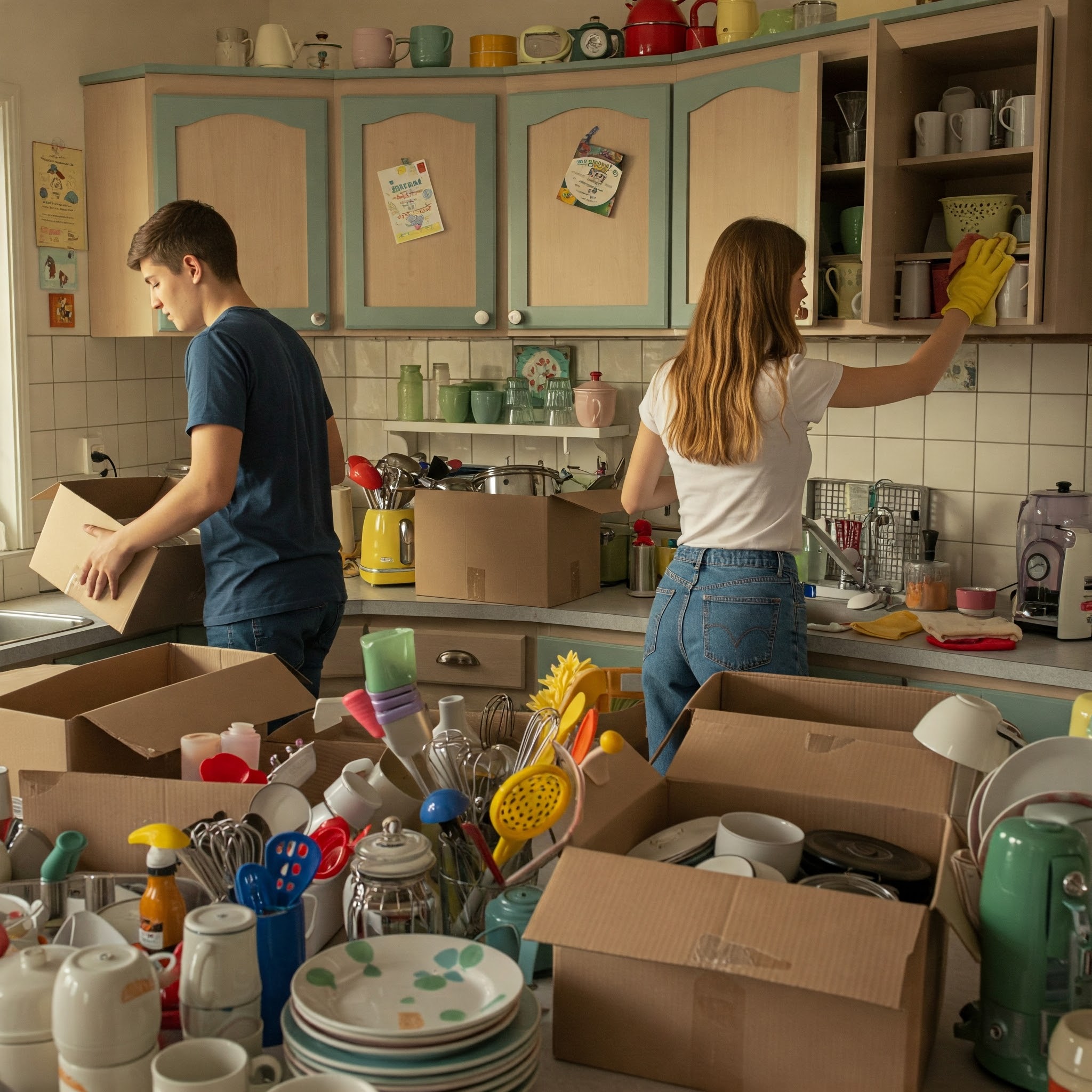

Question: What Room Takes the Longest to Pack When Moving?
Answer: The room that takes the longest to pack when moving is normally the kitchen. Its diverse contents—fragile dishes, numerous utensils, pantry items, and appliances—require careful wrapping and organization, extending the packing time significantly.
Which Room Eats Up the Most Time to Pack?
Moving presents many challenges. You must find a new place, arrange financing, and pack your belongings. Packing is often the most time-consuming and stressful part. Many people wonder, “What Room Takes the Longest to Pack When Moving?” While every home differs, one room typically demands more time and effort than others. This room contains many small items, fragile pieces, and sentimental belongings. It requires careful planning, organization, and packing supplies to ensure a smooth transition. We will explore which room usually takes the longest to pack and offer tips to make the process easier. By understanding these challenges, you can prepare better and reduce moving day stress. A little planning goes a long way in making this process manageable. Proper preparation can also prevent damage to valuable items. This will allow you to settle into your new home faster and easier.
The Kitchen: A Packing Marathon
The kitchen usually takes the longest to pack. It contains a diverse range of items, from delicate glassware to bulky appliances. The sheer volume of possessions in most kitchens contributes to the extended packing time. Cabinets and drawers often overflow with utensils, cookware, and food items. Each item needs individual attention to ensure it is safely packed. Careful wrapping and boxing is important. Many kitchen items are fragile, increasing the risk of breakage if not handled correctly. The kitchen also houses appliances, some of which may need special preparation before moving. This includes defrosting refrigerators and disconnecting gas lines. The preparation requires extra steps and time. Packing the kitchen demands a strategic approach. It should be started well in advance of moving day. Proper planning can minimize stress and prevent damage.
Click here for more information on brokers near me in Orangeville
Related Article: How to Mark Furniture for Movers?
Related Article: Can You Pack and Move In One Day?
Strategies for Efficient Kitchen Packing
While the kitchen can be time-consuming, efficient strategies can streamline the process. Begin by decluttering. Get rid of unwanted or unused items. Donate or discard items you no longer need. This reduces the number of items you have to pack. Next, gather the necessary packing supplies. You will need boxes, packing paper, bubble wrap, tape, and markers. Organize your supplies to keep them within easy reach. Pack similar items together. Group plates with plates and glasses with glasses. This makes unpacking easier. Wrap fragile items individually with packing paper or bubble wrap. Securely tape the wrapping to prevent movement. Clearly label each box with its contents and the room it belongs in. This will help the movers and simplify unpacking at your new home.
Start Early
Do not wait until the last minute. Start packing the kitchen weeks in advance.Declutter Ruthlessly
Get rid of items you no longer use or need.Use Quality Packing Materials
Invest in sturdy boxes, packing paper, and bubble wrap.
Other Rooms That Can Slow You Down
While the kitchen often takes the longest, other rooms can also present packing challenges. The living room, with its electronics and decorative items, can be time-consuming. Bookshelves filled with books require careful packing to prevent damage. The bedroom, with its clothing and personal items, can also take a while. Closets and dressers need sorting and packing. Garages and attics often contain accumulated items that require significant time to sort through. Decide what to keep, donate, or discard. Bathrooms, with their toiletries and personal care products, can also be tricky to pack. Ensure liquids are properly sealed to prevent leaks during transport. Consider each room’s unique challenges and plan accordingly to ensure a smooth moving process. With careful planning, any room can be packed efficiently.
Living Room
Electronics require special care and proper boxes.Bedrooms
Clothing needs to be folded or hung properly in wardrobe boxes.Bathrooms
Toiletries should be sealed to prevent leaks.
The Sentimental Factor: Packing Personal Belongings
Packing personal belongings adds another layer of complexity. Items with sentimental value often require extra care and consideration. Photographs, heirlooms, and personal mementos can evoke strong emotions, making it difficult to pack them quickly. These items often require special handling to prevent damage. Consider using acid-free paper or archival boxes to protect valuable documents and photographs. Label boxes containing sentimental items clearly.
Designate a special box for irreplaceable items. Keep this box with you during the move. This ensures its safety and prevents loss. Packing personal belongings can be an emotional process. Allow yourself time to reflect on the memories associated with these items. This can help ease the stress of moving. You can make the moving experience smoother and more enjoyable by taking the time to handle your personal belongings carefully.
Final Thoughts: Planning for Packing Success
Determining what room takes the longest to pack when moving is important for planning your move. The kitchen usually requires the most time because of the volume and fragility of its contents. The living room, bedrooms, bathrooms, and garages can also present unique packing challenges. Efficient packing strategies can help streamline the process, saving time and reducing stress. Starting early, decluttering, and using quality packing materials are key steps. Taking extra care with sentimental items also ensures their safety and preserves their value.
By understanding the challenges of each room, you can create a comprehensive packing plan. Your plan should address each room’s specific needs. This will help you manage your time effectively and make your move smoother. Remember, preparation is crucial. A well-organized move reduces stress and allows you to settle into your new home more quickly. Taking the time to pack efficiently is an investment that will pay off in the long run, leading to a less stressful and more enjoyable transition to your new residence.


